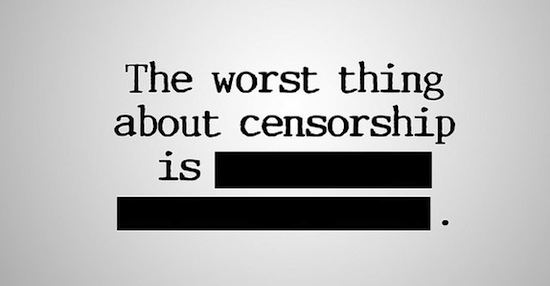Battle Lines Drawn Over Internet Censorship Bill

As the bigwigs of the content industry tries to sponsor bills that would give them legal power to effectively censor web sites over mere suspicion of “intellectual property” infringement opposition is getting stronger and more vocal.
As a reminder the bills in question are the PROTECT-IP Act in the US Senate, and SOPA (“Stop Online Piracy Act”) in the US House of Representatives. They are aimed at fighting online piracy, but provide powers that allow them to be used for far more than that, and put online businesses at constant risk of being pulled just because someone thinks they host a piece of infringing content.
The American Censorship Day on November 16 had sites across the web, including extremely well known sites like Reddit, censor their logo and link it to information about the bills.
A number of prominent web companies have also put their weight in opposition by signing an open letter to Senate and House members expressing concern over the proposed bills, and publishing it through ProtectInnovation.com. The companies involved are Google, Facebook, Twitter, LinkedIn, Zynga, Yahoo, Mozilla, and eBay. They state:
“We support the bills’ stated goals — providing additional enforcement tools to combat foreign “rogue” websites that are dedicated to copyright infringement or counterfeiting. Unfortunately, the bills as drafted would expose law-abiding U.S. Internet and technology companies to new uncertain liabilities, private rights of action, and technology mandates that would require monitoring of web sites. We are concerned that these measures pose a serious risk to our industry’s continued track record of innovation and job-creation, as well as to our Nation’s cybersecurity.”
They also expressed concern over these bills’ ability to undermine safe harbor provisions of the DMCA which they believe have been a “cornerstone of the U.S. Internet and technology industry’s growth and success“.
Indeed, DMCA is by many seen in positive light compared to these new legislations because it was largely born out of negotiations between the content industry and the technology industry in an attempt to reach a compromise. In case of PROTECT IP and SOPA such negotiations have been nonexistent.
Interestingly, Joe Biden has added his voice of opposition to these bills as well, who has previously declared war on online piracy calling it “theft, clean and simple”. When even he thinks SOPA is bad then it must be really bad, and it is.
That said, the above mentioned companies face considerable heavyweights on the other side including Microsoft, Apple, Adobe, Intel, Dell and others. Their opposition is registered by default as they all happen to be members of the Business Software Alliance, an organization dedicated to fighting software piracy.
It’s hard to say to which extent is their support for these bills merely formal, on the basis of their BSA membership, and to which extent would they actively advocate for these bills.


Comments - No Responses to “Battle Lines Drawn Over Internet Censorship Bill”
Sorry but comments are closed at this time.